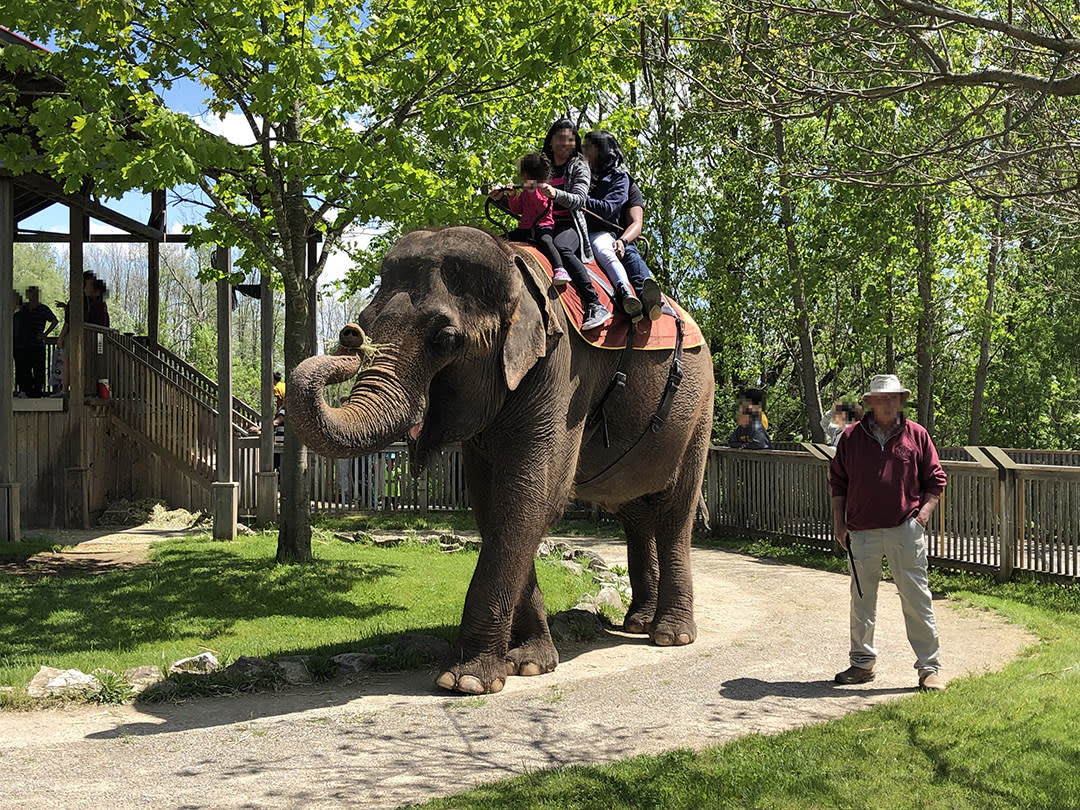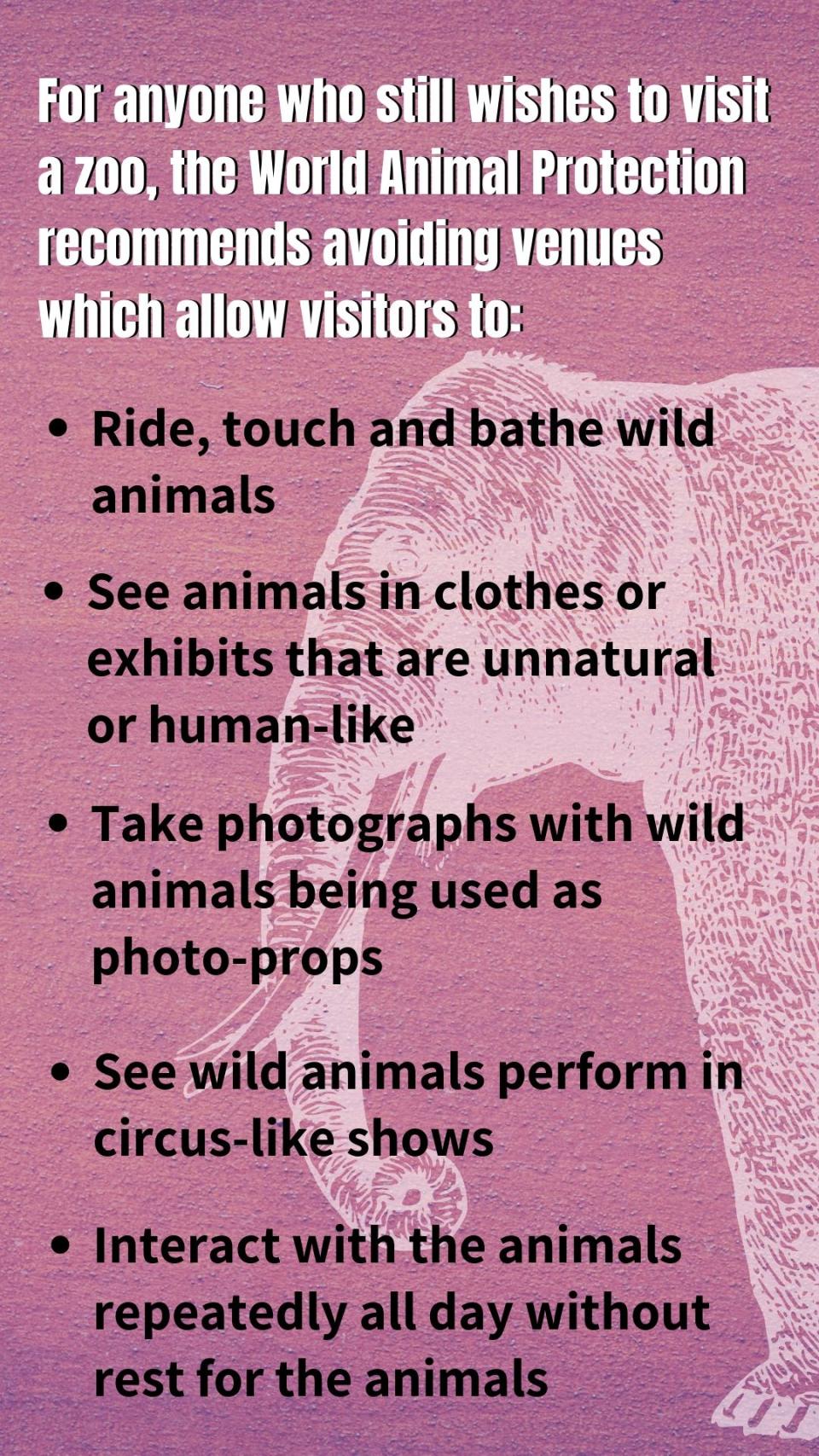'It's not educational, it's cruel': Two Canadian zoos among world's worst offenders

Canada has been singled out on another international list, but not for happy reasons.
New research by World Animal Protection and the University of Oxford’s Wildlife Conservation Research Unit exposes top zoos around the world where animals are abused and forced to take part in unnatural activities.
Two of these zoos are in Canada, and all of them are affiliated with the World Association of Zoos and Aquariums (WAZA), a global organization whose guidelines state members should not involve animals in unnatural and demeaning displays and interactive experiences.
According to the research, trainers routinely employ cruel training techniques in forcing captive wild animals to perform, despite WAZA guidelines and without facing any penalties.
“The public expects that zoos that are members of WAZA meet higher professional standards, but our research shows the association is turning a blind eye to controversial and potentially dangerous activities,” said Melissa Matlow, Campaign Director at World Animal Protection.
“This highlights why the government needs to step in as the zoo industry should not be policing itself."
Of the 1,200 zoos surveyed, researchers made field visits to 12 that showcase captive wild animals performing for or interacting with visitors, with a focus on big cats, dolphins, elephants and primates.
African Lion Safari and Jungle Cat World, both of which are located in Ontario, were among the zoos they visited.

At African Lion Safari, the organization says elephants were forced to perform tricks such as bowing, painting and lifting up a trainer. Visitors could also touch elephants and ride them on a circular track. At Jungle Cat World, visitors were able to get close enough take selfies with a variety of wild animals including cougars, tigers, lions and wolves.
Matlow cited a recent elephant attack at African Lion Safari that seriously injured a trainer to illustrate how forcing the animals to perform can be dangerous both to the animals and humans.
"Elephant rides and wildlife selfies are outdated and dangerous, as the recent attack on a trainer at African Lion Safari made clear,” Matlow said.
She added that while it’s not wrong to want to see wild animals up close, many visitors to zoos are uninformed about the cruelty that takes place behind the scenes.
"If you can see animals involved in activities they wouldn't normally do in the wild, then it shouldn't be shown in a zoo. It's not natural, it's not educational, it's cruel.”
As Canadians are learning more about the treatment of wild animals used for entertainment, their views toward the industry are changing. The study found that 61 per cent of Canadians find elephant riding unacceptable and 89 per cent believe wild animals belong in the wild. Tourism companies are responding by removing elephant rides from their offerings and Instagram now discourages wildlife selfies.
Meanwhile, World Animal Protection is pressuring Africa Lion Safari and the Ontario Minister of Labour to end elephant rides and shows at the park. The organization launched a letter-writing campaign in July that saw more than 7,700 people send e-letters to the park and the provincial government urging them to do so.
“The decision to launch our e-letter campaign came following global research we had conducted on activities that contravene professional zoo policy, and two visits to African Lion Safari, at the end of May and early June 2019,” a media release by World Animal Protection said.
“We received a lot of support and positive feedback about the campaign.”


